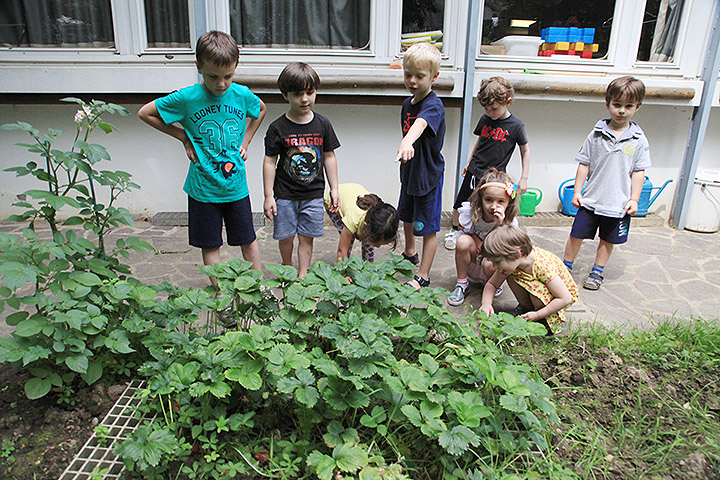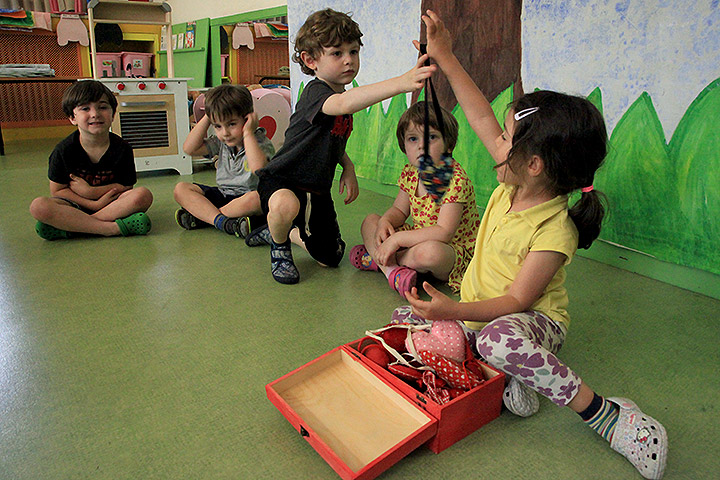Projects
PLAY is the starting point for our learning projects because through play children can express themselves, explore, create meaning and develop an understanding of the world around them.
The school provides a variety of workshops (based on natural exploration, art, etc.), to stimulate curiosity and support children in developing a positive disposition for learning through exploration and hands-on experiences.
All workshops are open to families who can be an active part of children’s learning by learning with them. To support the development of problem-solving skills a variety of experiences based on different languages (linguaggi) are also implemented through daily routines where the child is seen as competent and co-constructor of their knowledge.


The languages explored throughout our program are:
Cultural language
To stimulate the symbolic dimension of the child with whom they can give meaning to reality and the world around them. The school uses as a base for this language Fiabe (tales) and Miti (myths) to support the child understanding himself and give meaning to their own experience of the world.
Language of nature's life
By taking care of the school’s veggie garden, the child can explore the natural elements through their senses and enhance development on a variety of levels. The main areas of focus are natural elements, seasons, and natural phenomena.
Psychomotor language
Through movement, Gioiosa supports the harmonic development of different developmental areas: body, emotions, and cognitive skills. This language is extremely important for this age group as nonverbal language is more important than verbal one.
Manual expressive language
For free artistic expression of emotions and personal interpretations of the world that comes to life with shape and colors. This language also supports the development of fine motor skills and coordination.
Prelogical language
To support the child development of all the basic cognitive concepts and critical thinking through individual and group games.
English play
An English native speaker teacher runs this experience to allow the child to explore different sounds and meanings and ludically approach the English language.
Music
To develop a positive disposition for music through social play.
Structured play
To support the child embedding the value of norms and rules, cooperation, and sharing practices, together with resilience and ability to face conflict positively.

